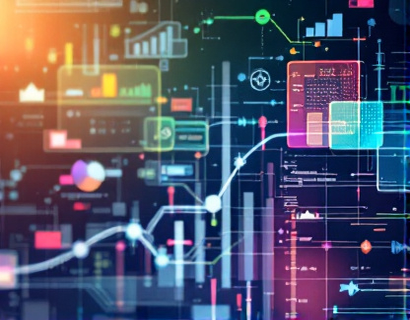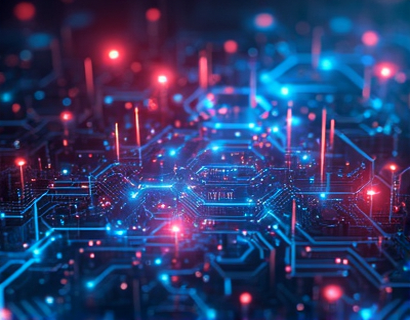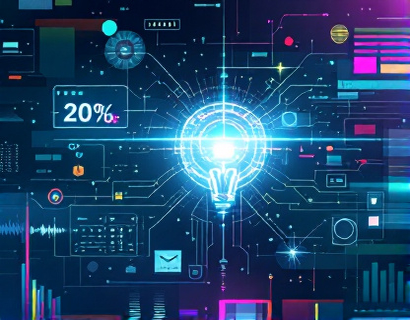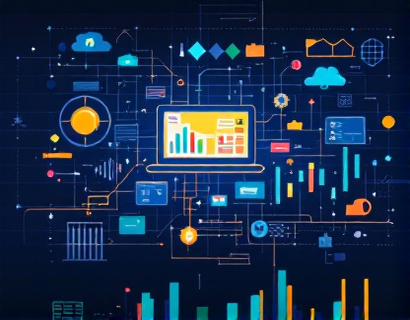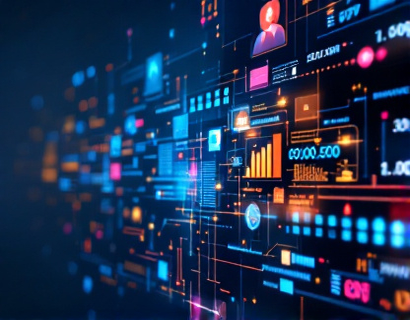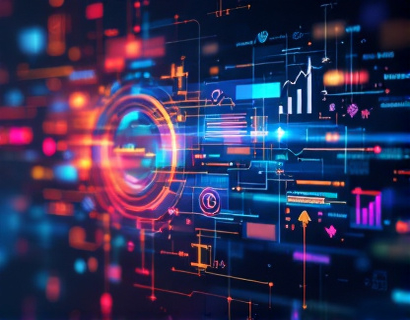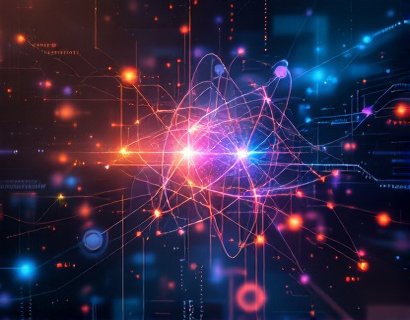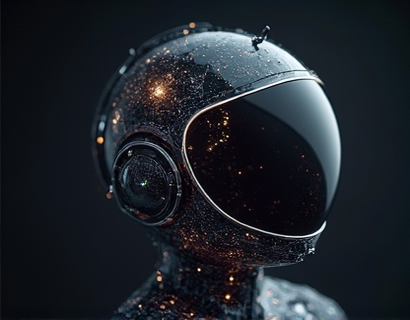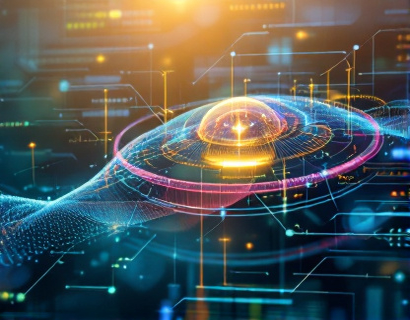Unlocking Enhanced Productivity in the Digital Age: The Synergy of AI and Cryptocurrency
The integration of Artificial Intelligence (AI) and cryptocurrency is revolutionizing the way we approach productivity in the digital realm. This synergy offers unprecedented opportunities for tech-savvy professionals and early adopters to enhance their workflow and task management. By leveraging the strengths of both technologies, individuals and organizations can achieve a smarter, more efficient digital future.
The advent of AI has brought about significant advancements in various sectors, from healthcare to finance. However, when combined with the decentralized and secure nature of cryptocurrency, the potential for innovation becomes even more profound. This article delves into the advanced solutions that are transforming the digital landscape, providing insights into how these technologies can be harnessed to revolutionize productivity.
Understanding the Basics: AI and Cryptocurrency
To fully appreciate the impact of AI and cryptocurrency on productivity, it's essential to understand the fundamental concepts of each technology.
Artificial Intelligence refers to the simulation of human intelligence in machines that are programmed to think and learn like humans. AI encompasses various techniques, including machine learning, natural language processing, and computer vision. These technologies enable machines to perform tasks that traditionally required human intervention, such as data analysis, decision-making, and automation.
Cryptocurrency, on the other hand, is a digital or virtual currency that uses cryptography for security. The most well-known cryptocurrency is Bitcoin, but there are thousands of others, each with unique features and use cases. Cryptocurrencies operate on decentralized networks, typically blockchain, which ensures transparency, security, and immutability of transactions.
The combination of AI and cryptocurrency creates a powerful toolset for enhancing productivity. AI can optimize the use of cryptocurrency in various ways, from improving transaction processing to enhancing security and providing new forms of value.
AI-Driven Cryptocurrency Trading
One of the most exciting applications of AI in the cryptocurrency space is automated trading. Traditional trading relies heavily on human analysis and decision-making, which can be prone to errors and emotional biases. AI algorithms can process vast amounts of data in real-time, identifying patterns and making trades based on predefined criteria.
These AI-driven trading systems, often referred to as algorithmic trading or robo-trading, can operate 24/7 without fatigue, providing a significant advantage in the fast-paced cryptocurrency markets. By leveraging machine learning, these systems continuously learn and adapt to market conditions, improving their accuracy and efficiency over time.
For individuals and organizations looking to enter the cryptocurrency market, AI-driven trading platforms offer a user-friendly interface and sophisticated tools to manage and optimize trades. This democratizes access to professional-level trading strategies, allowing a broader range of users to benefit from the cryptocurrency market.
Enhanced Security through AI and Cryptography
Security is a paramount concern in the cryptocurrency world, given the value and sensitivity of digital assets. AI technologies can significantly enhance the security of cryptocurrency transactions and storage.
One key application is in fraud detection. AI algorithms can analyze transaction patterns and identify anomalies that may indicate fraudulent activity. By continuously monitoring the network, these systems can detect and prevent fraud in real-time, providing an additional layer of security for users.
Another critical aspect is the protection of private keys, which are essential for accessing cryptocurrency wallets. AI can be used to generate and manage complex, secure private keys, reducing the risk of unauthorized access. Additionally, AI-powered security solutions can detect and mitigate threats such as phishing attacks and malware, further safeguarding user assets.
The integration of AI with blockchain technology also enhances the overall security of the ecosystem. AI can optimize blockchain protocols, improving scalability and reducing transaction times. This ensures that the network remains robust and reliable, even under heavy load.
Smart Contracts and Automated Workflows
Smart contracts are self-executing contracts with the terms of the agreement directly written into code. When combined with AI, smart contracts can automate complex workflows and tasks, significantly enhancing productivity.
In the context of cryptocurrency, smart contracts can be used to automate transactions, payments, and even business processes. For example, in supply chain management, smart contracts can ensure that payments are made only when specific conditions are met, such as the delivery of goods. This reduces the need for intermediaries and speeds up the process.
AI can further optimize smart contracts by analyzing data and predicting outcomes, allowing for more intelligent and adaptive contract terms. For instance, AI can assess market conditions and adjust the terms of a smart contract in real-time to maximize benefits for all parties involved.
In the realm of task management, AI-driven smart contracts can automate project workflows, from assignment to completion. By integrating with productivity tools and platforms, these contracts can ensure that tasks are completed efficiently and on time, reducing the administrative burden on team members.
Decentralized Productivity Platforms
The convergence of AI and cryptocurrency is giving rise to decentralized productivity platforms that offer new ways to collaborate and manage tasks. These platforms leverage blockchain technology to create transparent, secure, and community-driven environments.
One notable example is decentralized task management systems that use cryptocurrency as a native token. These tokens can be used to incentivize contributors, reward productivity, and facilitate fair compensation within the community. AI can enhance these platforms by analyzing user behavior and optimizing task allocation, ensuring that the most qualified individuals are assigned to the right tasks.
Decentralized autonomous organizations (DAOs) are another innovative application. DAOs use smart contracts to govern and manage projects, allowing for democratic decision-making and transparent operations. AI can assist in data analysis and strategy optimization, helping DAOs make informed decisions and improve their overall performance.
Personalized Productivity Tools
AI and cryptocurrency can also be leveraged to create personalized productivity tools tailored to individual needs and preferences. By analyzing user data and behavior, AI algorithms can recommend customized tools and workflows that enhance efficiency and focus.
For instance, AI-powered virtual assistants can integrate with cryptocurrency wallets to manage finances, track expenses, and provide real-time budgeting insights. These assistants can also suggest investment opportunities based on the user's risk tolerance and financial goals, all while ensuring secure and private transactions.
Moreover, AI can optimize digital workspaces by integrating various productivity tools and applications seamlessly. By using cryptocurrency for transactions within these integrated systems, users can enjoy a frictionless experience, with transactions being fast, secure, and cost-effective.
Challenges and Considerations
While the potential of AI and cryptocurrency in enhancing productivity is vast, there are several challenges and considerations to keep in mind.
First, the complexity of integrating these technologies requires a deep understanding of both AI and blockchain. Professionals and organizations need to invest in education and training to fully leverage these tools.
Second, regulatory challenges remain a significant hurdle. The cryptocurrency space is still evolving, and regulations vary widely across different jurisdictions. Ensuring compliance while innovating is crucial for sustainable growth.
Third, privacy and data security are paramount. While AI and blockchain offer robust security features, the handling of user data must be managed with utmost care to maintain trust and compliance with data protection laws.
Conclusion
The synergy of AI and cryptocurrency is poised to transform productivity in the digital age. By automating tasks, enhancing security, and creating decentralized platforms, these technologies offer a pathway to a more efficient and streamlined workflow. For tech-savvy professionals and early adopters, embracing this synergy can lead to significant advantages in the competitive digital landscape.
As the integration of AI and cryptocurrency continues to evolve, the possibilities for innovation and productivity enhancement are endless. By staying informed and adaptable, individuals and organizations can harness the full potential of these technologies to achieve their goals and thrive in the digital future.





